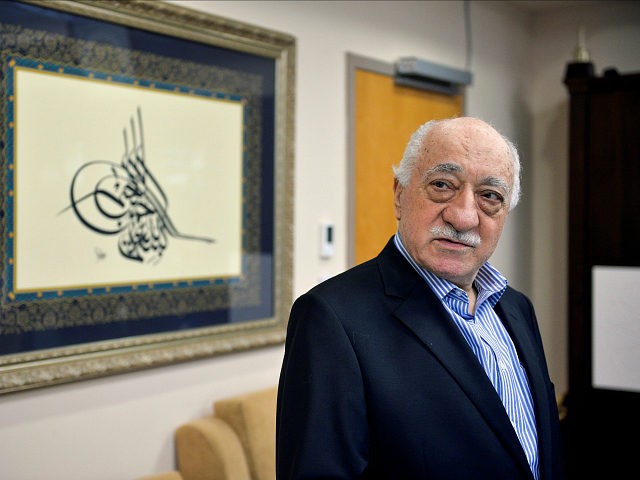The Iraqi Kurdistan Regional Government (KRG) has decided to assume control over all the schools in its jurisdiction linked to the religious movement led by imam Fethullah Gulen, whom Turkish President Recep Erdogan blames for the failed coup attempt against him.
Rudaw reports that KRG’s Ministry of Education has been charged with managing “all Gulen schools.”
Gulen, Erdogan’s former ally turned ardent opponent, is in self-imposed exile in the United States. The imam’s Gulen Movement, also known as Hizmet (Service), runs schools across the world, including the United States.
Frank Gaffney, founder and president of the Center for Security Policy, told Breitbart News Daily in May that the Gulen schools are used to promote a “kind of a Turkish Islamic supremacist cult” ideology.
KRG’s decision to take over the Islamist cleric’s schools in the region it controls in northern Iraq is a testament to its good relationship with Erdogan’s government in Turkey.
“The ministry will determine the management issue of Gulen schools in the Kurdistan Region,” Pishtiwan Sadiq, the Minister of Education, told reporters on Thursday, according to Rudaw.
“We cannot allow an organization to be involved in education in the Kurdistan Region if it has been listed as a terrorist organization in Turkey,” he added.
Citing high-level officials who oversee the Gulen schools in Iraqi Kurdistan, Rudaw reports that the education centers have been operating in the region for “22 years and have 15,000 students.”
Gaffney estimated that Gulen runs about 150 schools across the globe.
In an interview with Rudaw last month, Safeen Dizayee, a KRG spokesperson, predicted, “The Gulen schools will be under the Ministry of Education’s authority.”
“As the ministry announced some days ago, we won’t close down the schools, but will put them under the authority of the education ministry. And in this case we promise the students and their parents this won’t have much impact on the students,” he added.
Erdogan designated the Gulen movement a terrorist organization at the end of May. The Turkish president had long described the cleric, whom he accuses of trying to remove him from office, as a terrorist.
In the wake of the failed military coup in Turkey last July, Erdogan’s government accused the cleric and his followers, known as Gulenists, of being behind the insurrection, renewing their calls for the United States to extradite the imam.
“Turkish authorities closed down all schools with ties to Gulen [following the attempted coup] in Turkey and asked the KRG to do the same,” notes Rudaw.
When the Turkish president deemed the Gulen movement a terrorist organization earlier this year, Reuters reported, “Erdoğan might use the designation in pressing Washington to extradite Gülen, a step U.S. authorities are nonetheless unlikely to take without concrete grounds.”
In response to Turkish extradition demands after the failed coup, the Obama administration indicated that it would entertain such a request, but added that it needed legitimate evidence showing that Gulen participated in the insurrection.
During an official visit to Turkey last week, KRG President Masoud Barzani reportedly indicated that the Gulen schools in Kurdistan came up during his meetings with Turkish officials.
“Another issue was the Gulen schools in Kurdistan and we agreed on how to resolve this issue in a way that will not harm the students of the Kurdistan Region,” Barzani told reporters in Ankara on August 24.
The KRG’s decision to relinquish control of the cleric’s schools to its Ministry of Education comes after the Kurdish Democratic Union Party (PYD), which controls large swathes of northern Syria, reached out to Iraqi Kurdistan for help.
Fighters with the U.S.-backed People’s Protection Units (YPG), the armed wing of the PYD, and its umbrella group, the Syrian Democratic Forces (SDF), have been fighting pro-Turkish forces, that include thousands of members of the U.S.-backed Free Syrian Army (FSA), further complicating the Obama administration’s involvement in the Syrian war.
The KRG appears to be closer to Turkey than to their Syrian counterparts. Turkey considers the PYD and YPG to be terrorists.

COMMENTS
Please let us know if you're having issues with commenting.